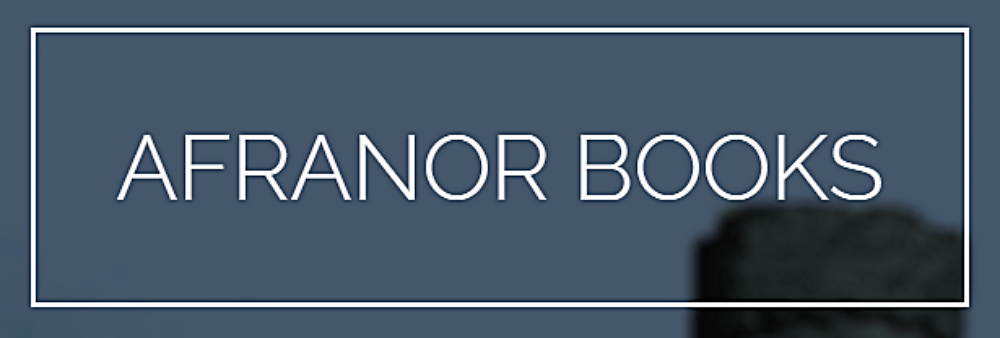One of the interesting side effects of writing and publishing a book is that you end up learning a fair amount about certain people’s reading preferences and habits. And you get disabused of certain things you thought you knew.
For example, before publishing I had completely bought into what I was reading and hearing seemingly everywhere: that digital books had largely supplanted print books. And maybe that is actually still true. After all, what I had been led to understand is that J.K. Rowling single-handedly converted new young generations into ravenous readers. And there is certainly evidence of that. Look at the endless numbers of titles published in the young adult and fantasy categories. Surely, somebody is reading a lot of those books and those somebodies must logically fit into age categories corresponding to readers who were young when
Harry Potter and the Philosopher’s Stone (or
Sorcerer’s Stone, as Rowling consented to for American versions, to her eternal regret) first came out.
And why wouldn’t those ravenous young readers prefer to be reading on digital devices? After all, young people are about nothing if not about their electronic devices. So it made sense that digital books would have caught on—just as music downloading and streaming had caught on. And surprising numbers of older people whom I knew were into their Kindles as well. And why wouldn’t they be? They are easier to read in terms of being able to enlarge text if necessary. I myself was a quick and unassailable convert to ebooks when they first appeared—although, strangely, I have never owned a Kindle. That was kind of an accident since I was hot to get an ebook reader before the Kindle was available in Europe, so my only choice was a Sony device. By the time Kindles arrived in the nearest Tesco, I was already addicted to reading books on my iPad. (Reading app of choice: Marvin by Appstafarian.)
So when it came time for me to publish I was convinced that there would quite likely not be a print version. After all, print was dead. Lots of niche authors were eschewing hardbacks and paperbacks and, in many cases, any format other than the Kindle’s. So I published for the Kindle with the plan to follow up with other digital formats after three months. As for a paperback version, I kept an open mind but did not make it a priority.
What I was not expecting was the number of people who informed me that they would wait until a paper version came out to read the book. Furthermore, I was surprised at how many people—in many cases younger than myself—were not familiar with ebooks and not interested in them. This includes people with whom I worked on the cutting edge of the software industry in the 1980s and 1990s—the very people you would think would embrace new technology. (A surprising number of them are pretty retro in their personal lives.) So I prepared a paperback version to be released at the same time as the non-Kindle digital versions. And the reaction was pretty much universal that the release of the paperback was the “real” release of the “real” book.
Something else I encountered, to a lesser degree, was that a number of people would have nothing at all to do with Amazon. That wasn’t exactly a shock. After all, Amazon is a huge corporation which has a competitive advantage over the small neighborhood bookstores and funky quaint book shops where lots of us book lovers would love to spend all our time hanging out. Amazon is the kind of business that is always portrayed as evil in the movies.
My own attitude toward Jeff Bezos’s operation has always been fond. After all I was living in Seattle when it was founded and I loved the idea of making every book available to everybody. I like it even better now that I live “in the back of beyond” where the nearest mom-and-pop book shop is a significant drive away. But I respect people who consciously choose to give all their book buying business to small shops. Some people I know will not even frequent chain bookstores like Eason’s or Waterstone’s.
The economic reality, though, is that my book will almost certainly never be stocked in a small shop. At best a determined customer might be able to ask the staff to special order my book—if the staff are even willing. A friend tried this at a Barnes & Noble in Bakersfield, California (where my book is partly set) and was told to go home and order it on B&N’s web site.
This creates an interesting paradox. Amazon has made self-publishing an attainable reality for multitudes of authors who otherwise would likely remain unpublished. But it is also endangering the quaint and traditional book shops that so many of us cherish. This is because the economics of those traditional bookshops always meant that a self-supporting author was necessarily a member of a relatively exclusive club.
Amazon’s business model is definitely more democratic and inclusive for authors and readers. But it also forces change that is not always comfortable. Thus it has ever been—at least as far back as the time Johannes Gutenberg put an unknown number of calligraphers out of business.
A final note: despite all the feedback about paperbacks and mega-bookstores, the vast majority of sales for my book to date have been for the Amazon Kindle. Despite this, when my next book comes out, it will be released in paperback first.


